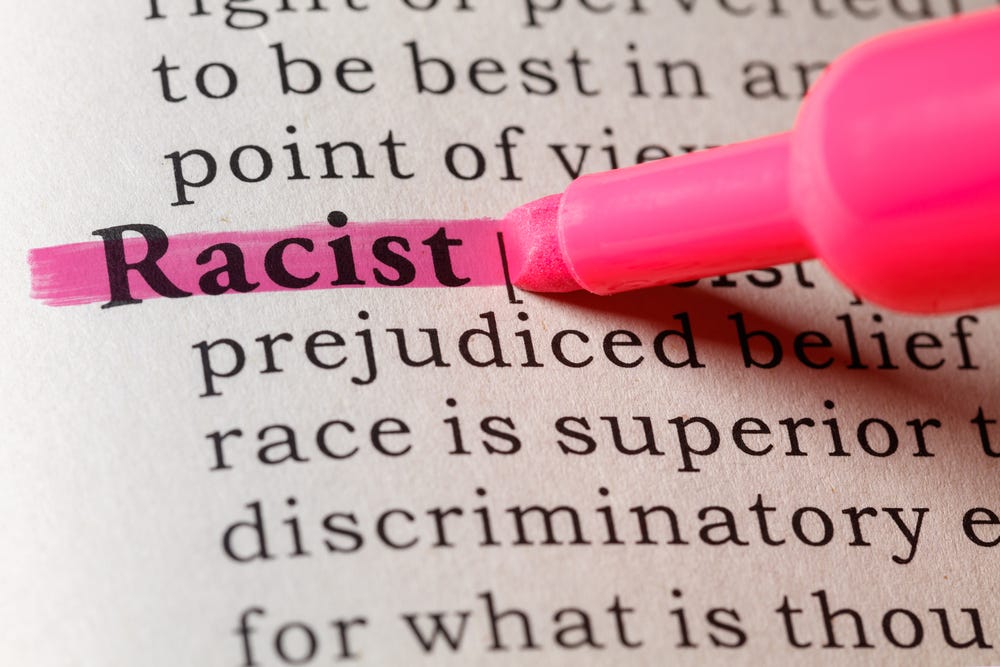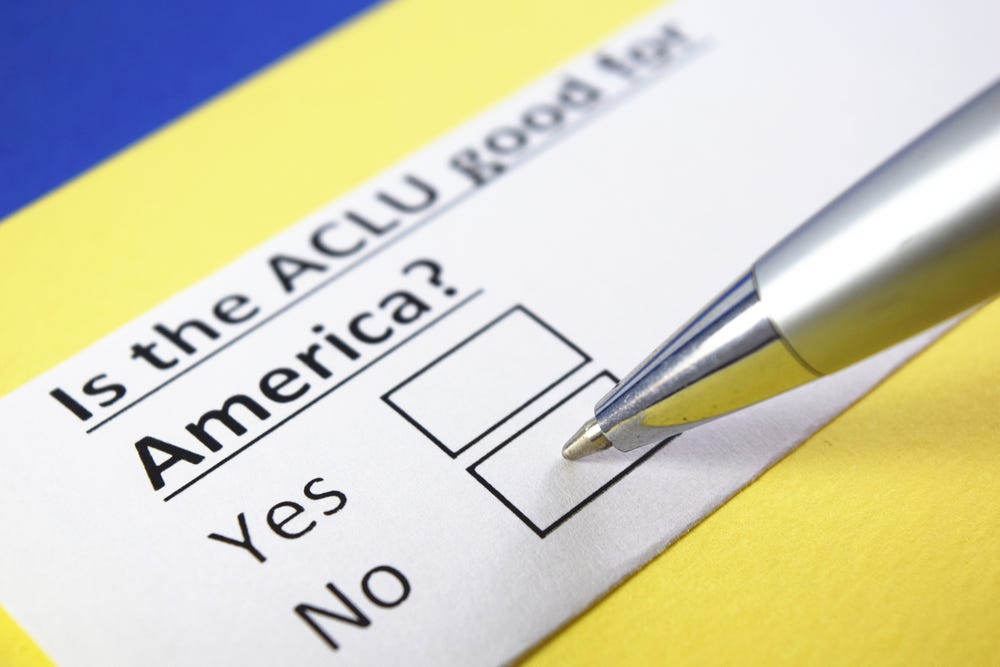E-Pluribus | November 22, 2021
The new Babel, what is really racist, and the ACLU continues to lose its way.
A round up of the latest and best writing and musings on the rise of illiberalism in the public discourse:
Jacob Howland: Building Babel
A desire for power and group identity drove the ancients in the book of Genesis to attempt a tower to the heavens. At City Journal, Jacob Howland says that similar motivations are prompting those with political and cultural power to seek to accomplish the same thing, in part by co-opting and corrupting our language while suppressing individuality and free thought.
Fear and pride raised the old Tower of Babel, built by anonymous wanderers who sought to “make us a name, lest we be scattered over all the earth.” Their anonymity is fitting, for there was then only “one language, one set of words. . . . one people” in the world. The Babylonians formed bricks out of the soil—adamah in Hebrew, the same stuff God breathed life into to make the first human being (ha’adam)—and began to “build a city and a tower with its top in the heavens.” These hard-baked bricks, all cut to the same measure, are images of human beings from whom the breath of individual life and particularity has somehow departed.
Modern attempts to construct the Tower have unfolded before, most notably in the Soviet Union and China. Today an inhumanly univocal tongue, asserting itself as the measure of all things, once again threatens to swallow the rich particularities and multiple languages of individual thought, speech, and creative expression.
The foundations of the new Tower have already been laid. In a recent interview, the Chinese dissident artist Ai Weiwei was asked if he thought that Donald Trump was an authoritarian. He did not:
If you are authoritarian, you have to have a system supporting you. You cannot just be an authoritarian by yourself. But certainly, in the United States, with today’s condition, you can easily have an authoritarian. In many ways, you’re already in the authoritarian state. You just don’t know it.
“Many things happening today in U.S. can be compared to Cultural Revolution in China, like people trying to be unified in a certain political correctness,” he said. “That is very dangerous.” He added that technology creates passive consumers of information: “You don’t have to act on anything. You just think you’re purified by certain ideas that you agree with it. That is posing dangers to society, to an extreme divided society.”
Read it all here.
Matt Lutz: What's Racist?
Ibram X. Kendi’s main contribution to the modern social justice movement is “anti-racism” and his influence in progressive and mainstream circles remains strong. But Matt Lutz at Persuasion writes that Kendi’s framing of racism leads to more injustice, not less.
The view that all inequalities are unjust is an old idea in political theory called egalitarianism. Kendi’s “anti-racist” agenda is a version of racial egalitarianism; justice is all about racial equality. But there are important objections to all forms of egalitarianism and, unfortunately for Kendi, racial egalitarianism is vulnerable to them as well. By looking at the traditional objections to egalitarianism, we can understand the problems with Kendi’s vision of “anti-racism.”
The basic problem for egalitarianism is that equality can conflict with other political goals or values. According to strict (or what Jonathan Haidt might call monomaniacal) egalitarians, in such a conflict our other goals must always be sacrificed to the goal of equality. But that has some incredibly counter-intuitive implications, particularly in cases where equality conflicts with the political value of liberty.
[…]
Nozick’s point is that people can freely act in ways that make us less equal—almost anything we do might have inegalitarian downstream consequences. If equality is all that matters, then our freedoms must be sharply curtailed to ensure that nothing we do leads to less equality.
One significant way in which the value of equality can conflict with other important goods is expressed by the “leveling down objection.” If the only thing that matters is equality, then it would be better for everyone to be equally miserable than for everyone to be unequally well-off. Making everyone equal doesn’t mean making the less well-off better-off. It just means making everyone equal, even if this involves lowering everyone’s standard of living.
Read the whole thing.
Robby Soave: The ACLU Thinks Kyle Rittenhouse's Civil Liberties Got Too Much Protection
My most recent original essay here at Pluribus addressed the mission creep various civil liberties organizations are experiencing, among which the ACLU is arguably the godfather. At Reason, Robby Soave looks at the ACLU’s response to the Kyle Rittenhouse verdict and how it demonstrates the organization’s slide continues unabated.
Perhaps it's not surprising that activists and Democratic politicians would reflexively cite white supremacy in a trial outcome that disappoints Team Blue. More troubling is the response to the verdict from an organization that should know better: the American Civil Liberties Union (ACLU). In a statement reacting to the verdict, ACLU-Wisconsin Interim Executive Director Shaadie Ali lamented the "deep roots of white supremacy" in Kenosha that prevented Rittenhouse from being "held responsible for his actions."
"Kyle Rittenhouse was a juvenile who traveled across state lines on a vigilante mission, was allowed by police to roam the streets of Kenosha with an assault rifle and ended up shooting three people and killing two," said Brandon Buskey, director of the ACLU's Criminal Law Reform Project. "These are the simple, tragic facts. His acquittal comes after an ACLU investigation exposing how Kenosha law enforcement used violence against protesters and drove them toward white militia groups, in ways that escalated tensions and almost certainly led to these shootings."
In a Twitter thread, the ACLU complained that Rittenhouse was not held accountable for his "conscious decision to travel across state lines and injure one person and take the lives of two people protesting the shooting of Jacob Blake by police."
[…]
One might have expected that an organization dedicated to the preservation of civil liberties would not so cavalierly take the side of prosecutors against the concept of self-defense. In the past, the ACLU has done terrific work shining a light on prosecutorial misconduct—the tremendous power the state has to stack the deck against defendants. The ACLU purports to believe that all people, even the guilty, deserve due process protections. The organization is evidently outraged by the verdict: Is the ACLU outraged that the prosecutor tried to argue that Rittenhouse exercising his Miranda rights was evidence of his guilt?
Read it all.
Around Twitter
In Toronto, “Islamophobia” fears overruled a student book event featuring the story of a victim of the terror group ISIS:
Author J.K. Rowling continues to undergo fallout from her position on transgender issues and human biology - a thread (click through for it all):
Glenn Greenwald on one of the safest accusations that can publicly made these days: "white supremacist":
And finally, via Peter Boghossian, “Cultural Appropriation”:










